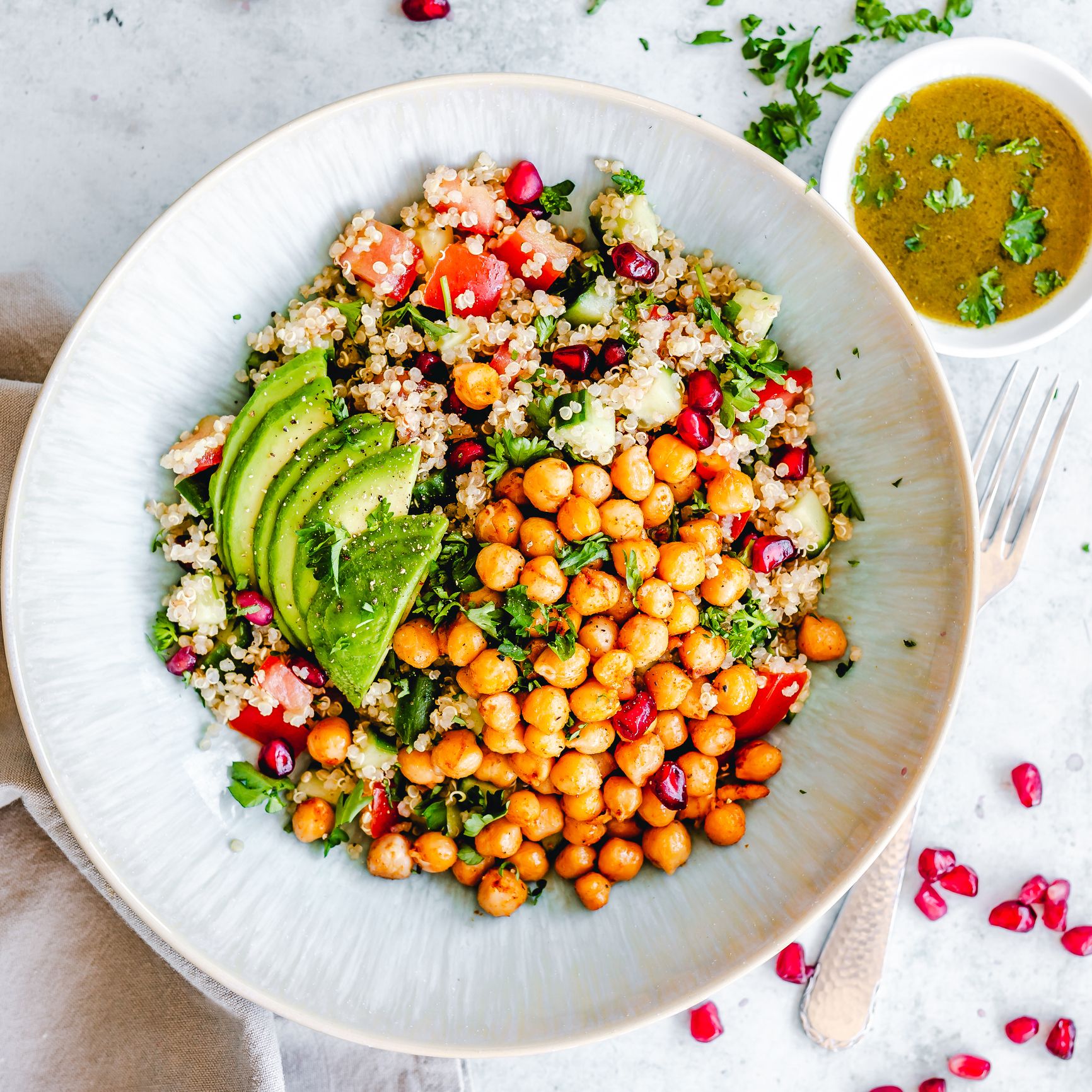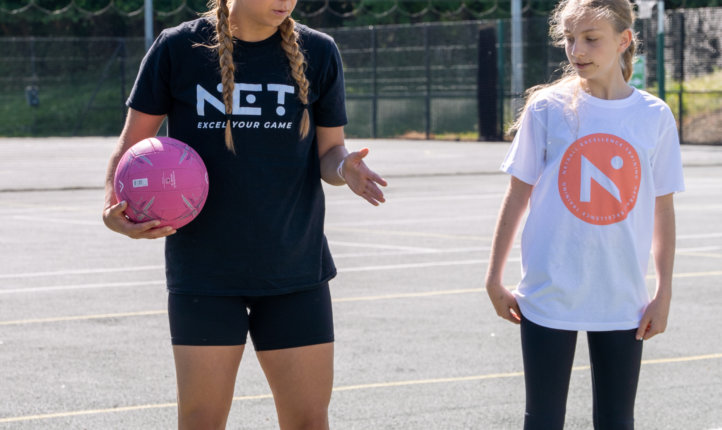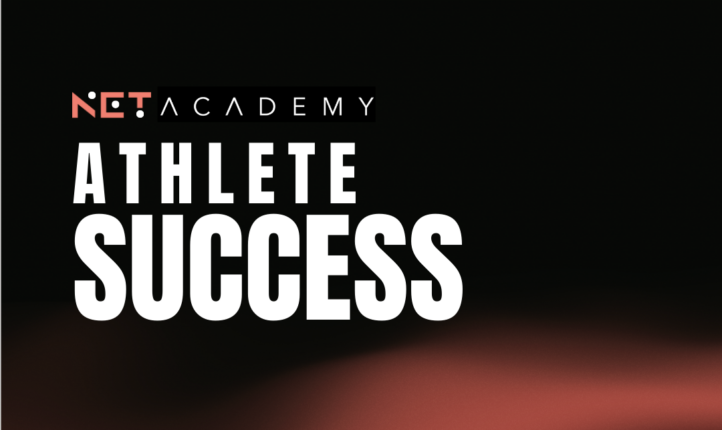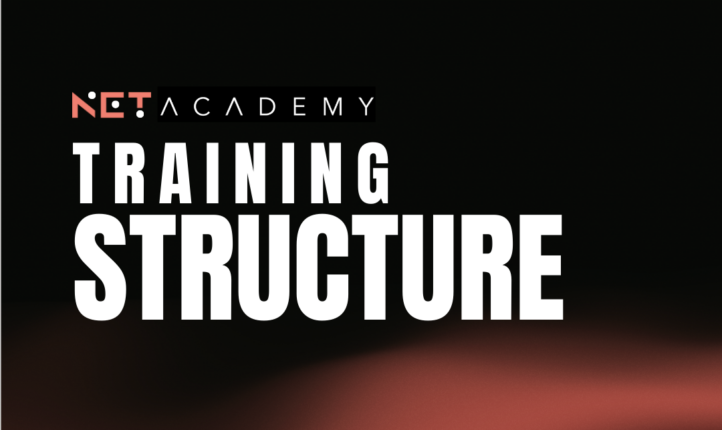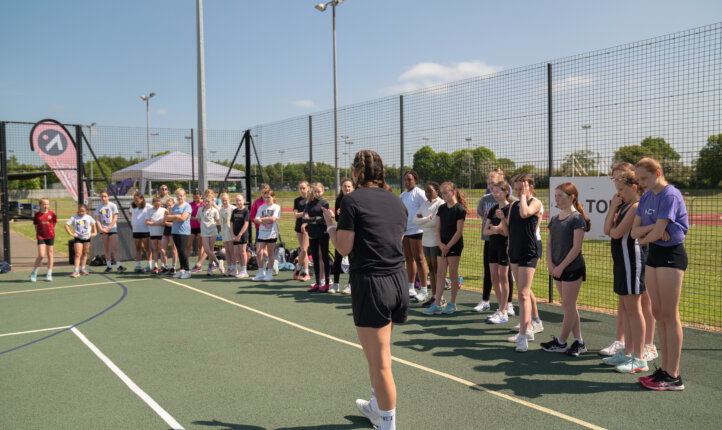October 1, 2020
NUTRITION: Tracking your Diet
Nutritionist and Personal Trainer, Lottie Thompson writes about the importance of protein in our diets.

Nutritionist and Personal Trainer, Lottie Thompson discusses the pros and cons of diet tracking and explains why mindful eating and goal setting in the kitchen can help us to see results.
“ Let’s not beat around the bush – if you really want to see results and accomplish your goal, you need to be completely honest with yourself and log everything you consume. is efficient, and that those improvements can be seen court-side.”
There are varying viewpoints about whether tracking your diet is a healthy habit, whether it is beneficial to achieving goals, and which way we should track it. I would always look at this from a functionality point of view – will it benefit my goals and health, both mental and physical, to track my diet? Or am I doing it due to the overload of information on social media that tells me to?
We could broaden this discussion to tracking habits – in which case, tracking how much water you drink can only be positive…right?
Pros
- Learn about your habits
- Mindful eating
- Educating yourself
- Keep you accountable
- Help you reach your goals
- Feel empowered by your choices
As you track your food intake, you will likely learn a lot about your eating habits and your dietary intake. If you can be accurate and specific when you report, then the information you gain will actually represent what you are consuming currently, and provide you with the necessary information. You may also realise that you are missing out food groups – you would be shocked at how many people don’t actually get their 5-a-day!
If you do decide to track your food, it will hopefully show you that you are already doing quite well and making positive and healthy choices. Make sure that you maintain these habits so you aren’t starting from 0! If you can build on these positive habits then it will take only small steps to improve and hopefully reach your goal, helping you feel empowered by your choices. It gives you a starting point, so that you can build on healthy habits and set out an attainable plan to meet your goals.
Mindfulness is something that many coaches focus on when it comes to diet. Can you remember everything you ate yesterday? If you have it recorded, then you are more likely to think before you eat, or plan your day’s eating based on your activity, availability etc. Mindful eating can also just mean thinking ‘I’m due to go out for dinner this evening and am likely to over-indulge. Rather than punishing myself, I will eat a nutritious, lighter meal before for lunch and make healthier choices tomorrow’. This is a much more positive relationship with food than ‘I’ve over eaten, I need to exercise this off and eat low carbs for a week to undo the effects’.
If you have a particular goal in mind, then tracking your food can be really helpful to get you there. For instance, if you are finding yourself lacking in energy mid-morning and early afternoon, it may be worth looking at the types of energy you’re consuming and whether that is best for your lifestyle. How about if you are struggling to muster the energy to complete a long workout? Or a dreary cardio session? Learning about your food consumption can help you fuel your function!!
Cons
- ZZzzz…
- Unhealthy obsession?
- Negative relationship with exercise
- Can still be unhealthy, just tracking numbers not health
- Stressful
Tracking everything can quickly become tedious. Let’s not beat around the bush – if you really want to see results and accomplish your goal, you need to be completely honest with yourself and log everything you consume. If your goal is vague such as ‘consume more water’, or ‘eat more fruit and veg’ then this is something you won’t necessarily need to be accountable for and you can easily journal off the top of your head. However, if your goal is more specific – ‘I need to consume the correct amount of protein 80% of the time, in order to help me achieve my strength goals for this month’ then you will need to be thinking about your food consumption throughout the day. This still allows for mindful eating, but with a bit more thought put into it!
If you have disordered eating tendencies, then tracking is not for you. It can lead to you being overly strict, “clean” and preoccupied with your food intake. If you start to notice yourself really stressing over whether or not you had crunch or smooth peanut butter this morning, then take a step back and reassess – is it really going to make a difference to me long-term?
If we look at tracking on the flipside, it is easy to become numbers driven – looking at how much you’ve eaten, how many calories, and not particularly being mindful of how nutritious the food is or how it makes you feel. Tracking should be used positively, where you are learning about your habits and health, while educating yourself to ensure progress over time.
For the best results, be honest with your recordings, write down more than the calories (energy, weight, mood, performance) and write it down in order, as nutrient timing is an important factor for fitness goals. It is best to record as much info as you can, but make it work for you. If recording the brand, portion, time and every other little detail is too much, dial it back a bit and simply record the food and drink without the rest.
A NOTE FROM THE COACH

“I’ve been Vegan for around 2 years and have always thought I have had a well balanced diet which fits all my nutritional needs. This was mostly because I always practice healthy eating and I felt good. However after upping my strength workouts and cardio exercise during Lockdown, I noticed that I wasn’t seeing as many physical changes to my bodies muscle mass as I would had hoped. This triggered me to track my diet and I realised that although I was eating a balanced diet, I was not eating enough total calories. Since, I have made changes to my diet to make sure I am eating enough of the major food groups as well as feeling my body enough to cope with the shier exercise intensity and I am now starting to see m muscles grow! I really love Lottie’s advise to be mindful when eating and not to get caught up in ‘food guilt’ (something I struggle with). It is important to realise all food is just food, it is not innately good or bad, it’s how it makes you feel that counts!






